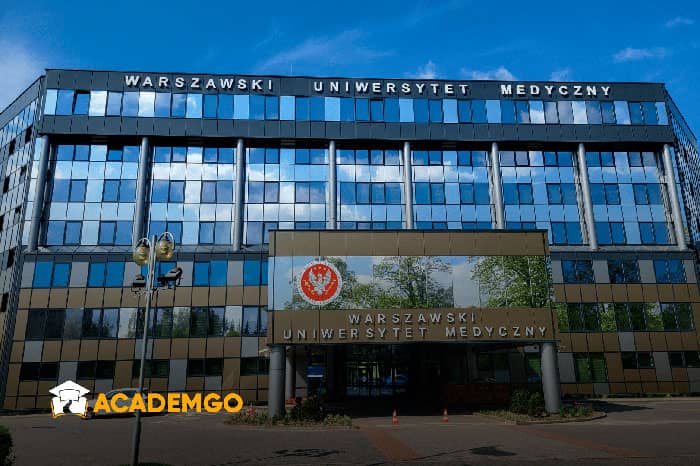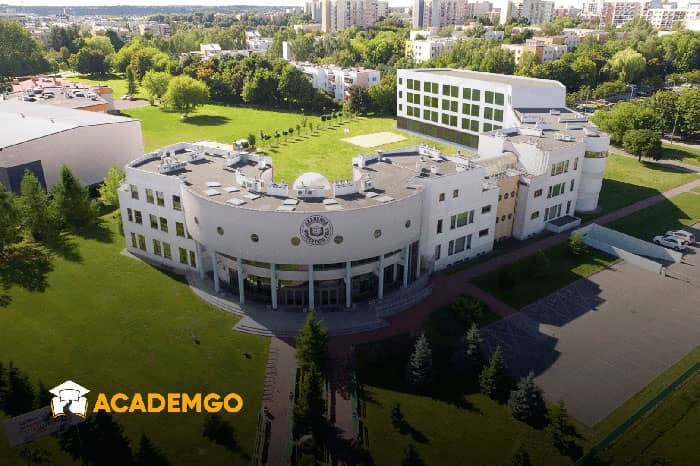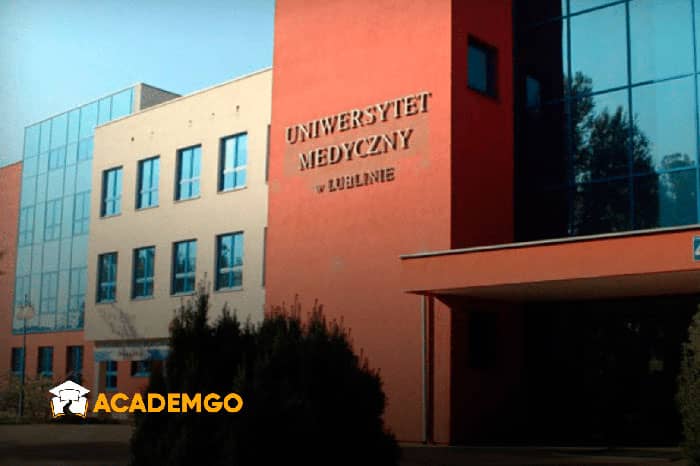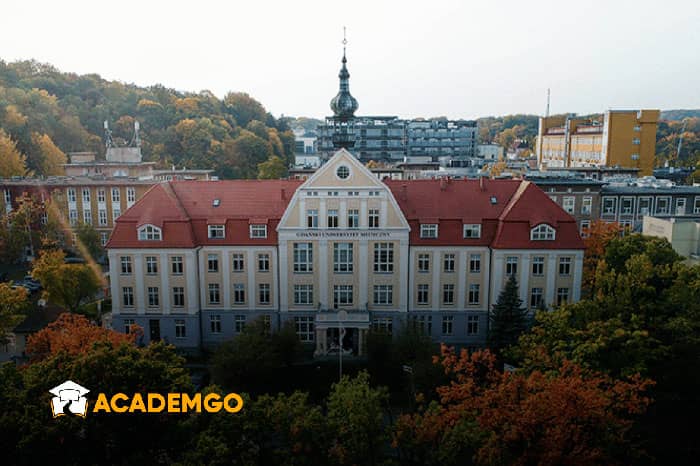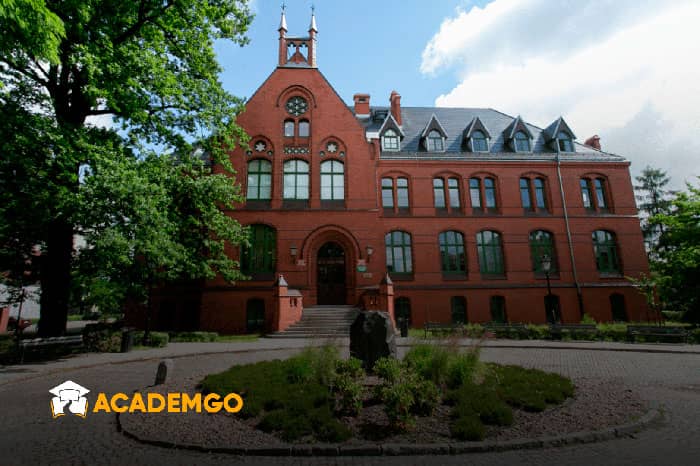
Medical Studies in Poland: English MD Programs & US/EU Recognition
Becoming a doctor in the USA or UK often means accumulating over $300,000 in student debt. Poland offers a smarter alternative: European medical degree (MD) valid worldwide, taught fully in English, for a fraction of the cost.
With world-class hospitals and curriculum aligned with EU and US standards, Poland is the top destination for international medical students. In this guide, we break down tuition fees, admission requirements, and the best universities.
Why Study Medicine in Poland? (Save up to 70%)
Affordable Tuition Fees
Medical education in Poland costs between €12,000 and €15,000 per year. Compare this to $60,000+ in the US or £40,000 in the UK. You get the same quality of education without the crippling debt.
Global Recognition (WHO, EU, US)
Polish medical diplomas are recognized throughout the European Union, by the World Health Organization (WHO), and the Medical Board of California. Graduates are eligible to take the USMLE(USA) and PLAB (UK) exams to practice abroad.
English-Taught 6-Year MD Programs
You don’t need to speak Polish to study. All lectures, labs, and clinical rotations are conducted in English by professors who often teach at international universities.
Top 5 Medical Universities in Poland
Where should you apply? Here are the most prestigious schools with established English programs.
Admission Requirements: Is it hard to get in?
Unlike medical schools in the US or Canada, Polish universities follow a Direct Entry system. You do not need a Bachelor's degree (Pre-med) to apply. You start your 6-year MD program directly after High School.
1️⃣ High School Diploma (Science Focus)
You must have completed secondary education with strong grades in Biology and Chemistry (these are mandatory).
- Third subject: Usually Physics or Mathematics.
- Minimum grades: Universities look for "B" or higher in these subjects. IB/EB diplomas and A-Levels are highly respected and may exempt you from entrance exams.
2️⃣ The Entrance Exam (Online)
Most universities (like Warsaw, Jagiellonian, Poznan) conduct their own entrance exams.
- Format: 60–100 multiple-choice questions (MCQ) on Biology and Chemistry based on the high school curriculum.
- Reasoning test: Some schools also test logical thinking and decision-making.
- Location: Nowadays, most exams are held online, so you don't need to fly to Poland just for the test.
3️⃣ The Interview
If you pass the written test, you will be invited to an interview (via Skype/Zoom). The commission will ask about your motivation: "Why medicine?" and "Why Poland?". They check your psychological readiness to become a doctor.
4️⃣ English Proficiency
Non-native speakers need an international certificate:
- IELTS: min. 6.5
- TOEFL iBT: min. 87
- Exemption: If your high school education was conducted entirely in English, you usually don't need a certificate.
Good News for US Students: You generally do NOT need the MCAT for admission. However, if you have a high MCAT or BMAT score, some universities may waive the entrance exam and accept you automatically.
Check Your Eligibility for Medical School
Checklist: Required Documents for Admission
To apply successfully, you need to prepare this specific set of documents. Warning: Poland has strict bureaucratic rules.
1. High School Diploma (with Apostille)
Your diploma must include grades in Biology and Chemistry.
- Important: If you are from outside the EU (e.g., USA, India, UK), your diploma must have an Apostille or legalization stamp from your country's Ministry of Foreign Affairs.
2. Eligibility Statement (Migration Certificate)
A document proving that your high school diploma allows you to study at a university in your home country. Without this, Polish universities cannot accept you.
3. Sworn Translations
All documents in foreign languages must be translated into Polish (or sometimes English) only by a Sworn Translator registered in Poland. Standard translations are often rejected. AcademGo helps organize this remotely.
4. Language Certificate
IF you are not a native speaker
IELTS (min 6.5) or TOEFL.
- Exception: Not required if your previous education was in English (e.g., High School in USA/UK/IB Diploma).
5. Medical Certificate (Health Check)
A doctor's note confirming you are fit to study medicine.
- Note: Before clinical classes start (usually 2nd year), you will also need a Hepatitis B vaccination record.
Medical Specialties in Polish Universities
Polish medical universities offer a wide range of specialties for students. Below are some of the most popular ones:
Dentistry and Pharmacy as Strong Medical Alternatives
If a 6-year MD program isn't for you, consider other English-taught medical fields available at the same universities:
- Dentistry (DDS): 5 years. Tuition: 13000 – 16000 euro per year. Very popular among students from Scandinavia and Canada.
- Pharmacy (Pharm. D.): 5.5 years. Tuition: 6000 – 8000 euro per year. A more affordable entry into the medical field.
- Nursing: 3 years (Bachelor). Tuition: 3000 – 5000 euro per year.
Medical Residency Options in Poland, USA and UK
What happens after you get your MD degree? You have three main options.
1. Residency in the USA (The most popular path) Polish programs are designed based on US standards. You can take the USMLE Step 1 during your studies (3rd or 4th year) and Step 2 CK after graduation to match for residency in American hospitals.
2. Work in the UK or Ireland Since Brexit, rules have changed slightly, but Polish degrees remain recognized. You will need to pass the PLAB exam to register with the GMC.
3. Residency in Poland (EU) You can stay in Poland and specialize (e.g., in Surgery or Cardiology).
❗️Condition: To do your residency in Poland, you must pass a medical language exam (Polish B2/C1) and the LEK (Final Medical Exam).
Start Your Medical Journey in Europe Today
Applying to medical school involves strict deadlines and complex paperwork (Apostilles, Eligibility Statements, Sworn Translations). One small mistake in your documents can lead to immediate rejection.
Don't risk your future. Let AcademGo handle the bureaucracy.
✔️ Pre-Assessment: We check your High School grades in Biology and Chemistry to see if you qualify for Direct Entry.
✔️ Exam Prep: We provide materials and guidance for university entrance exams.
✔️ Legal Support: We organize Sworn Translations and Visa procedures so you can focus on studying.
Find out which Medical University is the best fit for you – Get a Free Consultation Today!
Frequently Asked Questions
